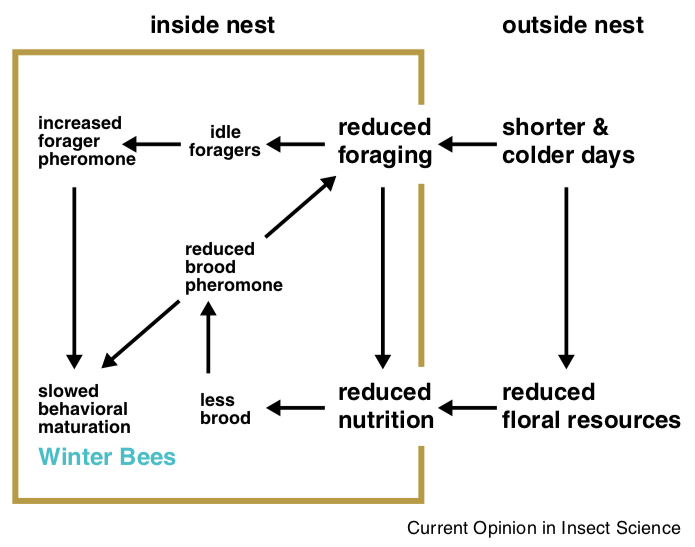- Joined
- Dec 13, 2017
- Messages
- 519
- Reaction score
- 167
- Location
- Monmouth
- Hive Type
- National
- Number of Hives
- 3
I do find this forum useful for asking what must seem to the old hands, silly questions. So here's another one which l have been pondering.
Winter bees. What triggers the queen/workers to know the time has come to produce winter bees?
If the autumn is particularly mild do they delay, or what? Can they get caught out by leaving it too late?
Also, are winter bees just a symptom of northern climes? Presumably in zones where there is no winter, workers are produced year round? If such bees were to be introduced to northern climes would they be genetically incapable of producing winter bees, therefore die out in the winter?
Winter bees. What triggers the queen/workers to know the time has come to produce winter bees?
If the autumn is particularly mild do they delay, or what? Can they get caught out by leaving it too late?
Also, are winter bees just a symptom of northern climes? Presumably in zones where there is no winter, workers are produced year round? If such bees were to be introduced to northern climes would they be genetically incapable of producing winter bees, therefore die out in the winter?
















































